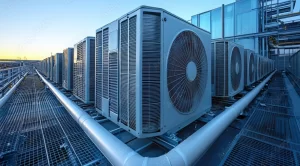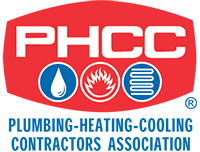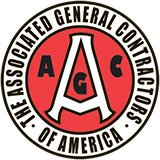
Texans are prepared for intense summers that would make anyone melt. Yet the dedication to maintaining air conditioning systems in preparation for those summers often leaves HVAC systems neglected. Yet in the world of commercial operations, ensuring the reliability of your heating, ventilation, and air conditioning (HVAC) system is essential. When unexpected shutdowns occur due to power outages, mechanical failures, or natural disasters, unprepared systems can lead to significant disruptions. These disruptions might even lead to long-term damage, but by taking proactive steps, businesses can safeguard their HVAC systems. Even when the worst happens, a prepared system will minimize downtime, ensuring a smoother recovery when the unexpected strikes.
At BTAC, we want to make sure you have all the knowledge and tools to ensure that your HVAC system is prepared for anything. This article delves into strategies to prepare commercial HVAC systems for unforeseen shutdowns, highlighting the importance of routine maintenance, smart technologies, and actionable protocols.
Why HVAC Preparedness Matters
As Texas saw in 2021, winter storms can have an enormous impact. An unexpected HVAC shutdown can have far-reaching consequences. Loss of climate control can affect employee productivity, equipment functionality, and customer comfort. This can mean serious disruption in everyday operations. Unprepared systems are more prone to damage during sudden halts and restarts. A damaged HVAC system will mean costly repairs or even needing to replace the entire system. Restarting a poorly maintained system can also increase energy consumption and utility bills. Overall, the costs are much higher when your HVAC system is unprepared. The cost of neglecting your HVAC system significantly outweighs the costs of upkeep.
Beyond immediate effects, HVAC systems have a large impact on indoor air quality. Stagnant air, humidity, and mold growth can occur when HVAC systems stop functioning, potentially leading to health concerns.
Proactive preparation reduces these risks, extends system lifespan, and maintains business continuity.
Key Steps to Prepare Your HVAC System
- Regular Maintenance and Inspections
Routine maintenance is the cornerstone of HVAC system reliability. Regular checks and professional inspections help identify and address potential issues before they escalate. Focus on filter changes, duct cleaning, component inspection, and refrigerant levels. Replace filters every 1-3 months to ensure proper airflow and efficiency. Clear ducts of dust, debris, and allergens to improve IAQ and system performance. Check belts, bearings, motors, and electrical connections for wear and tear. And finally, ensure refrigerants are at optimal levels to prevent system strain during restarts.
Scheduling professional maintenance twice a year—before peak heating and cooling seasons—ensures your system is ready for any scenario. BTAC is here to help!
- Develop a Shutdown and Restart Protocol
An organized plan for safely shutting down and restarting your HVAC system can reduce stress and errors during emergencies. Include the following in your protocol:
- Power-Down Procedures: Identify the correct sequence for shutting down components to prevent damage.
- Restart Guidelines: Outline steps to bring the system back online, including safety checks.
- Assigned Roles: Designate responsibilities for staff or service providers to ensure efficient execution.
Regularly train employees and update the protocol to reflect any system upgrades or changes.
- Invest in Backup Power Solutions
Power outages are a common cause of HVAC shutdowns. Backup power systems, such as generators or uninterruptible power supplies (UPS), can keep critical HVAC components running during outages. Key considerations include capacity, automatic transfer switches, and maintenance. Ensure your backup power source such as a generator can handle the HVAC system’s load. This can be tested before any emergency occurs. Make sure you have an HVAC expert install switches to enable seamless transitions between main and backup power sources. Regularly test and maintain backup systems to ensure reliability. Backup power minimizes downtime and protects sensitive equipment and materials from temperature fluctuations.
- Implement Smart HVAC Technologies
Smart technologies enhance preparedness by providing real-time monitoring and automated responses. These innovations include IoT sensors. These will track system performance and environmental conditions, alerting you to issues before shutdown occur. Automated controls are another useful tool. These are often already included in newer HVAC systems. Make sure they are set up effectively, as these allow you to program the system to adjust settings or initiate safe shutdowns during emergencies. Additionally, remote monitoring is now available to be incorporated into your HVAC system. With remote monitoring, you can access system data and controls from mobile devices. Even when off-site, these give you the power of swift action in response to any emergency.
Smart technologies improve system resilience and reduce the risks associated with unexpected shutdowns.
- Protect Against Environmental Risks
Environmental factors such as flooding, extreme temperatures, and debris can damage HVAC systems during unexpected events. Mitigate these risks by elevating your HVAC unit above potential flood levels. Use protective covers or enclosures to shield any outdoor components, especially systems that are on the roof. These are exposed to the heat in the summer, as well as precipitation. Also take care to install surge protectors to safeguard electrical components from power surges.
These precautions can save thousands of dollars on repairs and prevent prolonged downtime.
- Stock Essential Replacement Parts
Delays in obtaining replacement parts during emergencies can extend system downtime. Maintain an inventory of critical components, such as:
- Air filters
- Belts and pulleys
- Fuses and relays
- Thermostats and sensors
Having these items readily available ensures faster repairs and smoother restarts.
- Establish a Relationship with a Reliable HVAC Service Provider
Partnering an experienced HVAC service provider ensures prompt assistance during unexpected shutdowns. Look for providers that offer emergency response services that are available for urgent repairs 24/7. The best HVAC service providers will also create a preventative maintenance plan with comprehensive inspections and priority service. They will also offer customized solutions and tailored strategies to address your specific HVAC needs. At BTAC, we want to work with you to ensure safety and peace of mind.
A trusted service provider is invaluable during emergencies, helping you minimize disruptions and maintain system efficiency.
Case Studies: HVAC Preparedness in Action
Case Study 1: Retail Store in Austin, Texas
Challenge: A major retail store experienced a sudden power outage during peak summer shopping hours. Without a backup power system, the HVAC system shut down, leading to rising temperatures and customer complaints.
Solution: The store implemented a comprehensive HVAC preparedness plan, including:
- Installing a generator to power essential HVAC components.
- Upgrading to smart thermostats for real-time monitoring and control.
- Training staff on proper shutdown and restart procedures.
Outcome: During a subsequent outage, the store maintained comfortable indoor conditions, retaining customers and minimizing revenue loss.
Benefits of Preparing for HVAC Shutdowns
Proactive HVAC preparation offers several advantages:
- Reduced Downtime: Efficient protocols and backup solutions ensure faster recovery after shutdowns.
- Cost Savings: Preventative measures reduce repair expenses and energy waste.
- Enhanced IAQ: Continuous ventilation prevents air quality issues during unexpected halts.
- Longer System Lifespan: Proper maintenance and protection minimize wear and tear.
- Business Continuity: Reliable climate control maintains productivity and customer satisfaction.
Conclusion
Preparing your commercial HVAC system for unexpected shutdowns is a critical aspect of risk management. By investing in routine maintenance, smart technologies, and backup solutions, businesses can protect their systems, minimize disruptions, and ensure operational resilience. Whether facing power outages, natural disasters, or equipment failures, a well-prepared HVAC system is the key to maintaining comfort, efficiency, and continuity in any commercial environment.
BTAC is here to help your peace of mind. We work proactively with you to ensure that you have peace of mind in all seasons. Call us for your consultation today!










